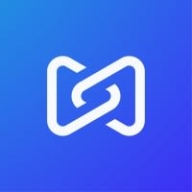

Klocwork and GitLab are key players in the software development tools category. GitLab appears to have the upper hand with its comprehensive features and strong value proposition often highlighted in user reviews.
Features: Klocwork is specialized in static code analysis, enabling early detection of software defects, providing a powerful code review function, and offering a focused approach to security vulnerabilities. GitLab covers a broad spectrum of the DevOps lifecycle, offering CI/CD pipelines, integrated collaboration tools, and project management features. This all-in-one approach often sways user preference toward GitLab.
Room for Improvement: Klocwork could enhance integration capabilities, improve reporting functions, and streamline its user interface to increase efficiency. GitLab users often request more precise code analysis, improved scalability for larger projects, and enhanced performance for repositories with high activity levels.
Ease of Deployment and Customer Service: Klocwork involves a more traditional setup process, which few users see as time-consuming but supported by responsive customer service. GitLab aligns well with cloud environments, offers a seamless deployment process, and receives positive feedback for its efficient customer service.
Pricing and ROI: Klocwork's setup cost tends to be higher, and ROI is considered justified mainly in niche applications. GitLab presents competitive pricing with widespread functionality, leading to a better ROI perception and making it a favored option for diverse projects.


GitLab is a complete DevOps platform that enables teams to collaborate and deliver software faster.
It provides a single application for the entire DevOps lifecycle, from planning and development to testing, deployment, and monitoring.
With GitLab, teams can streamline their workflows, automate processes, and improve productivity.
Klocwork detects security, safety, and reliability issues in real-time by using this static code analysis toolkit that works alongside developers, finding issues as early as possible, and integrates with teams, supporting continuous integration and actionable reporting.
We monitor all Application Security Tools reviews to prevent fraudulent reviews and keep review quality high. We do not post reviews by company employees or direct competitors. We validate each review for authenticity via cross-reference with LinkedIn, and personal follow-up with the reviewer when necessary.